Top Healthcare Career Paths to Watch and Pursue in 2025
Did you know that the Healthcare Industry is adding over 1.9 million new jobs in 2025 alone, and is projected to create more than 2 million new roles every year in the coming years? That’s not just growth, it’s a massive wave of opportunity. The healthcare sector is becoming one of the most secure and future-proof industries for people to work in, because technology advances, populations age, and the demand for care skyrockets. But because there are such many career paths and job titles, figuring out where to start can feel overwhelming. That’s why we’ve created this guide, to help you explore the healthcare landscape, understand how to break in, and discover which roles are set to thrive in 2025 and beyond. Understanding The Healthcare Landscape The healthcare industry is not completely composed of doctors and hospitals. A massive ecosystem includes clinical roles, administrative experts, tech innovators, mental health professionals, and public health strategists, etc all collaborating to maintain healthy populations. The healthcare landscape has evolved so quickly in recent years. It is becoming more patient-focused, data-driven, also digital, from remote patient monitoring to AI-powered diagnostics. A broader set of roles results from this shift. Many of them did not even exist a few years before. So whether you’re interested in direct patient care, tech and data, mental health, research, or operational support, there’s likely a place for you in healthcare. The key is understanding where your skills and interests fit best. How To Begin A Career In The Healthcare Industry Breaking into healthcare might seem overwhelming at first, but it doesn’t have to be. The right mindset with preparation plus a clear direction lets you carve a path fitting your goals and strengths. Here’s how to get started: 1. Identifying Your Passion And Strengths Ask yourself: Do I want to work directly with patients, or behind the scenes? Am I more drawn to biology and medicine, or to data and systems? Nursing or emergency care might be your calling if you are a people person, also you thrive in high-pressure situations. Love solving problems with technology? Health IT, AI in diagnostics, or bioinformatics could be for you. Passionate about mental health or wellness? Roles in counseling, therapy, or holistic care are growing fast. Your chosen path should be shaped by your interests. The path that you choose must also be shaped by all your strengths. Avoid chasing what’s “hot” unless it truly excites you. 2. Gaining Relevant Experience And Education Once you’ve identified your direction, it’s time to build your foundation: Formal education: You might need something ranging from just a diploma to even a doctorate, and it truly depends on the actual role. But do remember that not all of the roles require years after medical school. Associate degrees or certifications are needed in many high-demand jobs. Volunteer or intern: Hands-on experience in clinics, labs, or community programs can help you understand the field and build connections. Upskilling: Online courses, micro-certifications, and workshops can sharpen your skills in everything from medical billing to health data analytics. Even small steps count; they add up to a strong, competitive profile. Navigating Healthcare Job Opportunities After Graduation Graduating is a milestone, but what comes next can feel uncertain. The healthcare field is vast, and choosing where to begin can be confusing. But the good news? You don’t have to have it all figured out from day one. Here’s how to make that transition smoother: Start with entry-level roles: Don’t underestimate roles like medical assistant, health technician, care coordinator, or administrative positions. They offer great exposure, hands-on learning, and a chance to explore different departments. Look beyond hospitals: Clinics, as well as telehealth platforms or insurance firms, and public health organizations, plus mental health centers with biotech companies do all actively hire staff. Your first job could be in a place you never anticipated. Use your internships: If you’ve done internships or part-time work during your course, reach out to those connections. Many students get hired by the same organizations they interned at. Stay open-minded: The healthcare job you start with might not be the one you stay in forever. Career paths in this field are rarely linear, and that’s okay. Your first role is just the start. Curiosity, rapid learning, and experience building are what matter. Leveraging iPeople Career (Recruitment Agency) And Networking You know some job seekers overlook that finding the right healthcare job isn’t just about what you know, it’s also about who’s guiding you through the process. At iPeople Career, we specialize in connecting ambitious healthcare professionals with the right career opportunities. We match people with purpose rather than matching resumes to roles. Why trust us? Because we focus only on healthcare. We understand all of the industry’s needs with all of the skills in demand. Employers are also looking for a certain kind of professional. We are here in order to help you better navigate your career path, even if you are ready to move up or you are just starting out. We simplify the journey. Instead of endlessly searching job boards, we bring the right roles directly to you, roles that align with your strengths, experience, and future goals. And yes, we’ll also support you through interviews and onboarding. And yes, networking still matters. Build real connections, talk to mentors, join healthcare groups, attend industry events, and stay visible on platforms like LinkedIn. It complements the support you get from us and increases your chances of landing high-impact roles. At iPeople Career, we’re not just filling jobs; we’re helping shape healthcare careers with purpose and direction. Preparing For The Job Market Let’s be real, if you have the right qualifications, that is only half of the battle. How you present yourself in healthcare can be as important as what’s on your resume today. Here’s how to show up prepared: Polish your resume, but make it personal. Applications in hundreds go through the healthcare recruiters. To truly make yours stand out, clearly highlight your relevant skills








